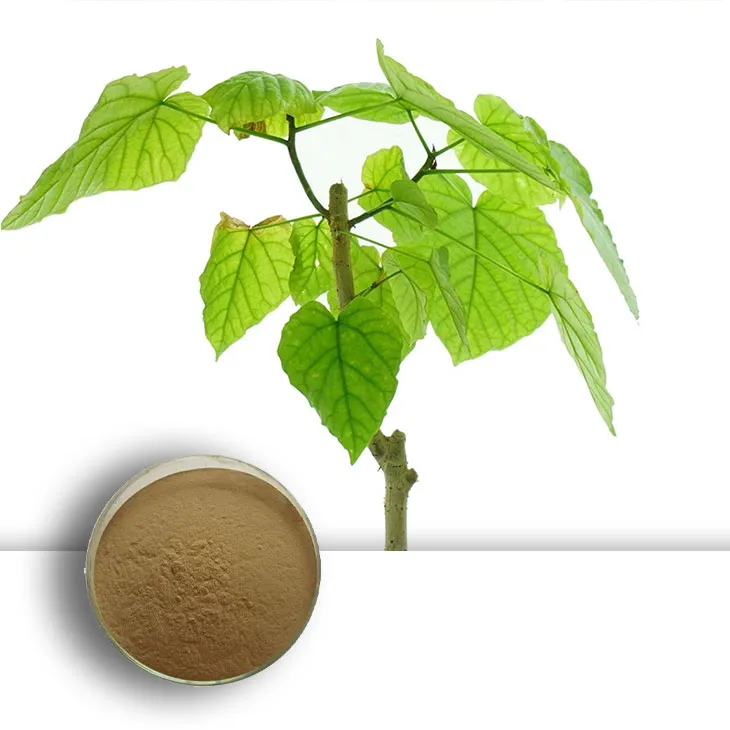- 0086-571-85302990
- sales@greenskybio.com
The Best Herbs for Treating Anxiety and Insomnia: Mulberry Leaf Extract.
2024-11-12

1. Introduction
Anxiety and insomnia are two common problems that affect a large number of people in modern society. Anxiety can cause excessive worry, restlessness, and difficulty concentrating, while insomnia can lead to problems such as fatigue, irritability, and reduced quality of life. Traditional medicine has long been exploring natural remedies for these conditions, and one such remedy that has recently gained attention is Mulberry leaf Extract.

2. Traditional Uses of Mulberry Leaves
Mulberry leaves have a long history of use in traditional medicine systems, such as in Chinese medicine. In these traditional systems, mulberry leaves were often used for various purposes related to health promotion.
2.1. Cooling and Detoxifying
They were believed to have a "cooling" effect on the body, which was thought to help in reducing internal heat and detoxifying the body. This was relevant in the context of treating conditions that were associated with excessive "heat" in the body, such as some types of fevers and inflammations.
2.2. Respiratory Health
Mulberry leaves were also used to support respiratory health. They were used in remedies for coughs, sore throats, and other respiratory ailments. The traditional understanding was that the properties of mulberry leaves could help soothe the airways and relieve congestion.
2.3. Blood Sugar Regulation
Another traditional use was in relation to blood sugar regulation. It was thought that mulberry leaves could have an impact on blood glucose levels, which made them potentially useful in the management of diabetes or in preventing blood sugar imbalances.

3. Modern Scientific Validation of Mulberry leaf Extract
In recent years, modern scientific research has been carried out to explore the potential benefits of Mulberry leaf Extract, especially in relation to anxiety and insomnia.
3.1. Chemical Composition
Mulberry leaf extract contains a variety of bioactive compounds. These include flavonoids, alkaloids, and polysaccharides. Flavonoids, such as rutin and Quercetin, are known for their antioxidant properties. They can help neutralize free radicals in the body, which are associated with various diseases and aging processes. Alkaloids in mulberry leaves may have potential effects on the nervous system, which could be relevant in the context of treating anxiety. The polysaccharides may play a role in immune regulation and overall health promotion.
3.2. Anti - Anxiety Effects
- Some studies have suggested that mulberry leaf extract may have anxiolytic (anti - anxiety) effects. One possible mechanism is through its interaction with the GABAergic system in the brain. GABA (gamma - aminobutyric acid) is an inhibitory neurotransmitter that helps regulate neuronal excitability. If mulberry leaf extract can enhance the function of the GABAergic system, it may reduce anxiety levels.
- Another aspect is related to its antioxidant properties. High levels of stress and anxiety can lead to increased oxidative stress in the body. By reducing oxidative stress, mulberry leaf extract may help to counteract some of the negative effects of anxiety on the body and brain.
3.3. Sleep - Promoting Effects
- Mulberry leaf extract may also promote sleep. It could potentially affect the sleep - wake cycle by interacting with the body's circadian rhythm. The circadian rhythm regulates various physiological processes throughout the day and night, including sleep. If mulberry leaf extract can help regulate this rhythm, it may improve sleep quality.
- Some research has also indicated that the bioactive compounds in mulberry leaf extract may have a sedative effect. This could be due to their influence on neurotransmitters involved in sleep regulation, such as serotonin. Serotonin is involved in mood regulation as well as sleep, and an imbalance in serotonin levels can lead to sleep problems.

4. Benefits of Mulberry Leaf Extract for Anxiety and Insomnia
- Improved Sleep Quality: For those suffering from insomnia, mulberry leaf extract may help in achieving a more restful sleep. This means fewer awakenings during the night, longer periods of deep sleep, and overall better restoration of the body during sleep.
- Reduced Anxiety Levels: People with anxiety may experience a decrease in their symptoms. This could manifest as less worry, reduced restlessness, and an improved ability to cope with stressors in daily life.
- Enhanced Well - being: By addressing both anxiety and insomnia, mulberry leaf extract can contribute to an overall improvement in well - being. This includes better mood, increased energy levels during the day, and improved cognitive function.
5. Safety and Efficacy of Mulberry Leaf Extract
- Safety: Generally, mulberry leaf extract is considered safe when used appropriately. However, as with any supplement, there may be some potential risks. For example, in some individuals, it may cause mild gastrointestinal discomfort such as nausea or diarrhea. Pregnant and breastfeeding women should be cautious when using any herbal supplement, including mulberry leaf extract, as there is limited research on its safety in these populations.
- Efficacy: While there is some scientific evidence suggesting the potential benefits of mulberry leaf extract for anxiety and insomnia, more research is needed to fully establish its efficacy. Current studies are often limited in sample size and scope, and further large - scale, well - designed trials are required.
6. Possible Side - Effects
- As mentioned earlier, some people may experience mild gastrointestinal side - effects. These are usually transient and may subside as the body adjusts to the supplement.
- There is also a possibility of allergic reactions in some individuals, especially those who are allergic to mulberry or related plants. Symptoms of an allergic reaction may include skin rashes, itching, or swelling.
7. How to Use Mulberry Leaf Extract
- Dosage: The appropriate dosage of mulberry leaf extract can vary depending on factors such as the individual's age, health status, and the specific product. It is important to follow the manufacturer's instructions or consult a healthcare provider for personalized advice.
- Form of Administration: Mulberry leaf extract is available in various forms, including capsules, tablets, and liquid extracts. The choice of form may depend on personal preference and ease of use.
- Duration of Use: It is also important to consider the duration of use. Long - term use of any supplement should be monitored, and periodic reviews with a healthcare provider are advisable.
8. Conclusion
Mulberry leaf extract shows potential as a natural remedy for anxiety and insomnia. Its traditional uses, combined with emerging scientific evidence, make it an interesting option for those seeking alternative ways to manage these conditions. However, more research is needed to fully understand its safety, efficacy, and optimal use. In the meantime, individuals considering using mulberry leaf extract for anxiety or insomnia should approach it with caution, consult with healthcare providers, and be aware of the possible side - effects.
FAQ:
1. What are the traditional uses of mulberry leaf extract in treating anxiety and insomnia?
In traditional medicine, mulberry leaves have been used for various health purposes. For anxiety and insomnia, they were often made into herbal teas or tinctures. The traditional belief was that the natural compounds in mulberry leaves could calm the nerves and promote relaxation, which in turn might help with sleep and reduce anxiety symptoms. However, these uses were mainly based on empirical observations passed down through generations rather than modern scientific research at that time.
2. How does modern science validate the effectiveness of mulberry leaf extract in treating anxiety and insomnia?
Modern scientific studies have started to explore the potential of mulberry leaf extract. Some research has found that it contains certain bioactive compounds such as flavonoids. These flavonoids may have antioxidant and anti - inflammatory properties. In terms of anxiety and insomnia, they might act on the nervous system by influencing neurotransmitter levels. For example, they could potentially regulate serotonin levels, which is closely related to mood and sleep regulation. However, more in - depth research is still needed to fully understand the mechanisms.
3. What are the benefits of using mulberry leaf extract for those with anxiety and insomnia?
The main potential benefit is the improvement of sleep quality. By reducing anxiety levels, it may help individuals fall asleep more easily and have a more restful sleep. It could also potentially reduce daytime restlessness associated with anxiety. Additionally, compared to some synthetic medications, it may offer a more natural alternative for those who prefer to use herbal remedies. However, it should be noted that individual responses may vary.
4. Is mulberry leaf extract safe to use for treating anxiety and insomnia?
Generally, when used in appropriate doses, mulberry leaf extract is considered safe for most people. However, some individuals may be allergic to it, and it may interact with certain medications. For example, if someone is taking blood - thinning medications, there could be a potential interaction. It is always advisable to consult a healthcare provider before starting to use mulberry leaf extract, especially for those with pre - existing medical conditions or who are taking other medications.
5. What are the possible side - effects of using mulberry leaf extract?
Some possible side - effects include mild gastrointestinal discomfort such as nausea or diarrhea in a small number of users. In rare cases, allergic reactions may occur, which can manifest as skin rashes or itching. If any of these symptoms occur after using mulberry leaf extract, it is important to stop using it immediately and seek medical advice.
Related literature
- Title: The Potential of Mulberry Leaf Extract in Promoting Sleep: A Review"
- Title: "Mulberry Leaf Extract and Its Impact on the Nervous System: Insights into Anxiety Relief"
- Title: "Traditional Herbal Remedies for Anxiety and Insomnia: The Role of Mulberry Leaf"
- ▶ Hesperidin
- ▶ citrus bioflavonoids
- ▶ plant extract
- ▶ lycopene
- ▶ Diosmin
- ▶ Grape seed extract
- ▶ Sea buckthorn Juice Powder
- ▶ Beetroot powder
- ▶ Hops Extract
- ▶ Artichoke Extract
- ▶ Reishi mushroom extract
- ▶ Astaxanthin
- ▶ Green Tea Extract
- ▶ Curcumin Extract
- ▶ Horse Chestnut Extract
- ▶ Other Problems
- ▶ Boswellia Serrata Extract
- ▶ Resveratrol Extract
- ▶ Marigold Extract
- ▶ Grape Leaf Extract
- ▶ blog3
- ▶ blog4
- ▶ blog5
-
Organic Tongkat Ali extract powder factory.
2024-11-12
-
How to make powder with ashwagandha extract.
2024-11-12
-
Rosehip extract manufacturers from China.
2024-11-12
-
The best cat's claw extract in nature.
2024-11-12
-
Chinese Dandelion Leaf Extract Suppliers.
2024-11-12
-
Stevia Extract
2024-11-12
-
Wheat Germ Extract
2024-11-12
-
Nettle Root Extract
2024-11-12
-
Hawthorn Extract
2024-11-12
-
Artichoke Leaf Extract
2024-11-12
-
Green coffee bean Extract
2024-11-12
-
Saw Palmetto Extract
2024-11-12
-
Red Vine Extract
2024-11-12
-
American Ginseng Root Extract
2024-11-12
-
Bayberry Extract
2024-11-12





















